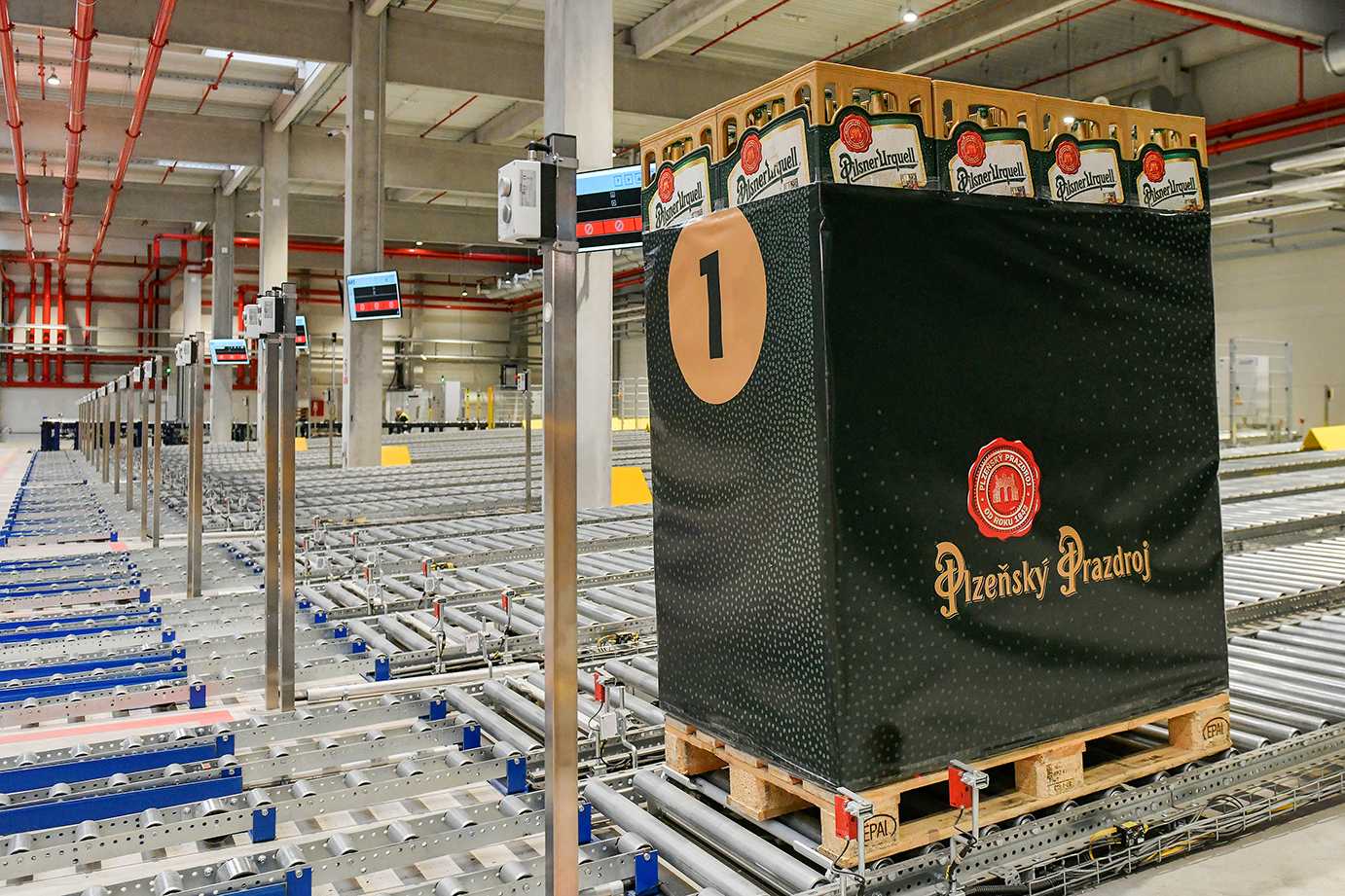Thessaloniki gets ready for its metro launch in November
The underground rapid transit lines have been under construction for almost two decades due to various project delays
 TheMayor.EU logo
TheMayor.EU logo Plzeňský Prazdroj’s new brewery warehouse launched an automated rail system capable of storing more beer and loading it onto trucks much more efficiently
Last week, the beer warehouse of Plzeňský Prazdroj, located in Pilsen, Czechia, announced they have installed a new fully automated trolley system. The system has also reduced the CO2 emissions of the warehouse and is part of the firm’s bid to become a sustainability benchmark in the brewing industry.
According to the company, the automated system has been able to increase storage space, lower emissions and increase offloading speeds significantly. Additionally, it’s the biggest investment in its production line since 2006 with around 780 million Czech crowns.
The warehouse also has three water reservoirs capable of capturing more than 800 cubic metres of rain for recycling. Additionally, according to a statement, the facility will get an upgrade with a solar roof, dropping energy consumption even further.
The automated trolley system in Plzeňský Prazdroj’s factory represented the largest investment since 2006 at around 780 million crowns, roughly equivalent to 32 million euros. The system consists of 28 trolleys that can transport bottles and cans from the bottling to storage along tracks with a total length of over half a kilometre.
The trolleys move pallets to unique self-supporting shelves making more efficient use of the space in the warehouse. According to the company, they can store up to 20% more product, with the total capacity of the warehouse estimated at around 16,000 pallets or 18 million beers.
Additionally, this has increased the speed at which the pallets can be loaded on trucks by an estimated 50% with the company saying it can 290 pallets per hour, corresponding to roughly 9 trucks. The rails and trolleys, which run on electricity, have reduced the need for forklifts, in turn, lowering the overall carbon footprint of the operation by around 500 tons of CO2.

The unique storage shelves, Source: Plzeňský Prazdroj
Making beer at an industrial scale can be a water guzzler so finding ways to increase efficient water use can be paramount. This is why the company also installed three reservoirs for rain with a total capacity of 838 cubic metres. The water will be used mainly for cooling during the brewing process.
Additionally, Plzeňský Prazdroj claim that they will expand their sustainable practices during the production cycle of beer by including a facility for recycling bottles on the site. Moreover, the enterprise said that beer in glass packaging is by far their best-selling product and the material has the best potential for reuse – making recycling the most sensible choice.
František Holý, warehouse manager of Plzeňské Prazdroje was quoted in a press statement saying that the addition of a photovoltaic system on the brewery’s roof would lower the energy consumption by an estimated 30%, making Plzeňské Prazdroje even more sustainable.

The underground rapid transit lines have been under construction for almost two decades due to various project delays

Now you can get your wine in Talence by paying directly in Bitcoin

That’s because the state has to spend money on updating the railway infrastructure rather than subsidizing the cost of the popular pass

Rethinking renewable energy sources for the urban landscape

The examples, compiled by Beyond Fossil Fuels, can inform and inspire communities and entrepreneurs that still feel trepidation at the prospect of energy transition

Now you can get your wine in Talence by paying directly in Bitcoin

The 10th European Conference on Sustainable Cities and Towns (ESCT) sets the stage for stronger cooperation between the EU, national and local level to fast track Europe's transition to climate neutrality.

At least, that’s the promise made by the mayor of Paris, Anne Hidalgo

The underground rapid transit lines have been under construction for almost two decades due to various project delays

At least, that’s the promise made by the mayor of Paris, Anne Hidalgo

Hostal de Pinós is located in the geographical centre of the autonomous region

Despite its church-y name, the district has long been known as the hangout spot for the artsy crowds

Urban dwellers across the EU are having a say in making their surroundings friendlier to people and the environment.

Forests in the EU can help green the European construction industry and bolster a continent-wide push for architectural improvements.

Apply by 10 November and do your part for the transformation of European public spaces

An interview with the Mayor of a Polish city that seeks to reinvent itself

An interview with the newly elected ICLEI President and Mayor of Malmö

A conversation with the Mayor of Lisbon about the spirit and dimensions of innovation present in the Portuguese capital














